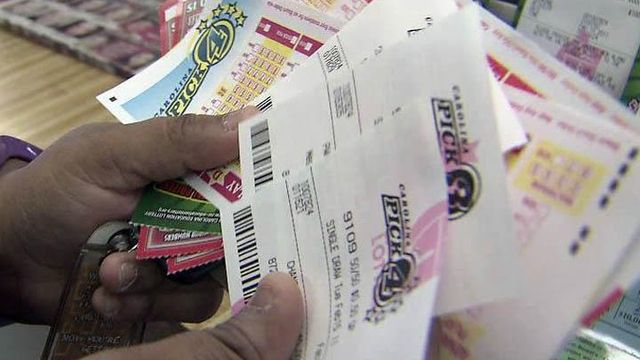Audit: Lottery accepted goods from vendor
The North Carolina Education Lottery accepted televisions, DVD players and extra lottery equipment from its primary vendor instead of assessing monetary damages for any breakdowns in the lottery system, according to an audit released Wednesday.
Posted — UpdatedThe lottery's contract with GTECH Corp., which provides the statewide system for issuing and tracking lottery tickets, calls for the state to withhold payments to the company to compensate for any downtime in the ticket system and other delays.
From the lottery's inception in March 2006 through the end of last June, the lottery should have assessed $460,804 in damages to GTECH, according to the audit. Instead, the lottery reduced that total by $278,432 in exchange for goods and services like TVs and DVD players for regional claims offices, a dozen instant-ticket vending machines, retailer training meetings and equipment for the lottery test lab.
The remaining $182,372 of the damages wasn't collected until this year, after State Controller David McCoy reminded lottery officials that they were legally required to dock GTECH for non-performance on its contract, according to the audit.
"The idea of getting game machines, televisions, DVDs in trade for penalties instead of cash, that's really not good policy," said Dennis Patterson, a spokesman for the State Auditor's Office.
"(State) policy says the penalty needs to be paid in cash," Patterson said. "It's not a barter system where you give us something for the money."
Robert Farris, chairman of the lottery commission, said in a formal response to the audit that auditors never raised the issue of accepting goods and services when they reviewed the agency's contracts two years ago. He said the practice is common among lottery systems nationwide, and officials were doing what they thought was in the best interests of North Carolina.
"We feel all these expenditures were good expenditures used to sell lottery tickets, promote lottery, raise money for education," lottery spokesman Van Denton said, adding that the state would have to buy the instant-ticket machines anyway.
Auditors also noted that lottery officials never documented the value of the 12 instant-ticket machines to ensure that they were worth the $195,300 discount given to GTECH. Farris responded by saying it's difficult to get an external value of the machines since each state uses different configurations, so they rely on GTECH's valuation estimates.
• Credits
Copyright 2024 by Capitol Broadcasting Company. All rights reserved. This material may not be published, broadcast, rewritten or redistributed.





